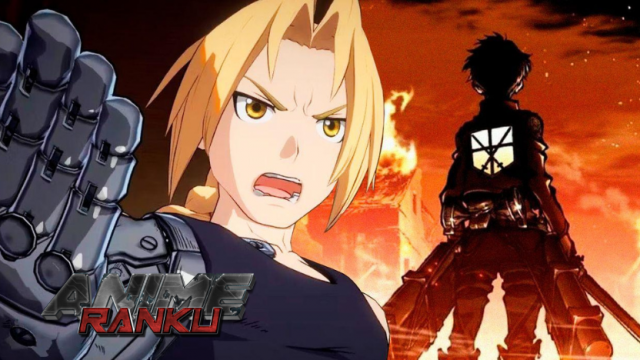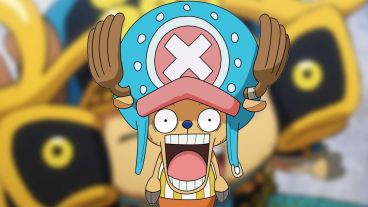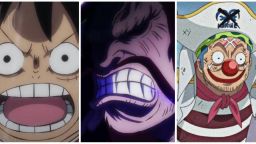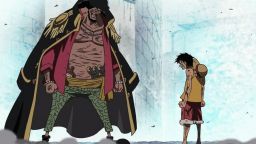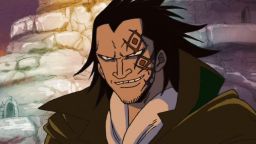Anime and manga have been the chosen media for expressing the most repulsive aspects of human nature—from violence to sexual appetites, from fears to yearnings—since their inception. Akira and Ghost in the Shell are two examples of movies that gave names, bodies, and faces to trauma and fear so that they could be the targets of social unrest or in-depth existential queries. Even works that may seem more superficial, like Dragon Ball, display an odd obsession with the body, muscles, flesh, and overwhelming physical strength.
In this cultural context, the idea of sin begins to emerge as a powerful narrative tool capable of shaping meaningful stories revolving around transgression, pain, and atonement. Deeply existential and overwhelmingly human, these stories provide the audience with a cathartic experience at the end of a long journey of suffering. In some cases, the characters are paying for the sins of their fathers, which fall on their shoulders; in others, they committed a terrible act of transgression for which they must atone. Fullmetal Alchemist and Attack on Titan are prime examples of this, as are other old and new anime that use the same compelling premise to investigate human nature.
Fullmetal Alchemist: Edward and Alphonse Elric's Hubris-Based Sin

One of the strongest and most unsettling introductions in the history of manga — and anime, if one looks at the 2003 version — is the opening scene of Fullmetal Alchemist. In a world where alchemy prevails over science and Edward and Alphonse Elric are left to fend for themselves after their mother passes away, they make the decision to attempt her resurrection. After months of study, they finally come up with a formula that might work, with Edward encouraging his brother to keep going. But as soon as they begin the "ritual," it becomes clear that it won't. They must pay a price by losing their bodies, or at least parts of them, in the process.
Edward and Alphonse’s transgression is all the more heartbreaking because it was borne out of grief in a moment of extreme childhood vulnerability. Their actions, similar to those of the protagonists of Greek tragedies, are understandable but still the product of hubris, the arrogance of going beyond what humans are allowed to do -- in this case, it’s a sin against the natural order of things, life and death.
In the aftermath of their unforgivable offense, their atonement is a life spent in search of a way to get their bodies back, while working like 'dogs' for the army as alchemist soldiers. Despite their young age, both Edward and Alphonse have learned a lesson that took away their innocence and turned them into adults. As adults, they are taking responsibility for their mistakes. Edward’s especially is a painstakingly slow and torturous journey to pay back his brother for what he feels was his fault.
Light Yagami Thinks He Can Replace God in Death Note

Similar to this, Light Yagami's choice in Death Note is a worse example of hubris. Light's sin is still very much an act against God even though it lacks the excruciating pain of an immediate physical punishment. Light makes the decision to serve as the ultimate arbiter of right and wrong, life and death, effectively taking the place of God itself, more so than Edward and Alphonse did. Although a shinigami gives him the death note, he chooses to use it and become the executioner on his own.
Light’s punishment comes late and is perhaps harsher than that delivered to Edward and Alphonse Elric. Arguably discarded like an old toy, he is killed by the shinigami Ryuk when he stops being of interest to him. Once the entertainment is over, as promised, Ryuk takes his life and effectively delivers divine justice over Light’s indefensible trespassing into God’s territory -- the worst sin imaginable.
Both Death Note and Fullmetal Alchemist share similarities with classic Greek tragedies. However, they resemble the tale of Oedipus in different ways. While Light Yagami’s ascent to power is alike Oedipus’s journey to kingship, Edward and Alphonse’s crime-and-punishment arc is reminiscent of Oedipus’s acknowledgment of his incest and his consequent atonement through self-inflicted blindness and banishment. It’s a corporal act that gives his suffering additional potency.
Promised Neverland, Terror in Resonance, and AoT All Depict How the Sins of the Fathers Haunt Their Children

In other works, something slightly different transpires. In the anime Attack on Titan, which centers on generational guilt, the fathers' sins are unwittingly assumed by the children as retribution for an original sin that seems impossible to atone for. The lust for power that led Eren's ancestors to wage war and commit genocide is now being paid for by Eren and the other Eldia descendants. It's intriguing to note that many of the series' characters have German names, possibly implying a connection between Eldia and a guilt-ridden post-WWII Germany.
Children are paying for their fathers’ sins in another anime of recent years, The Promised Neverland. Although, in this case, they are being sacrificed for the sake of world peace, the children are shouldering the weight of a war that happened before they were even born and that they are being used to avoid.
A final sublime instance of this concept comes from Terror in Resonance, where contemporary younger generations are made to suffer because of their grandfathers' and great-grandfathers' obsession with war, victory and power. Victims of Japan’s unwillingness to let go of the shame of WWII’s defeat, the protagonists of this anime sacrifice their lives to make themselves heard, forcing the public to acknowledge what has been done to them and the future they were denied because of a generation’s inability to overcome trauma.
A Cathartic Experience is Sparked by Stories of Sin

Considering how much they draw from Greek tragedies -- Terror in Resonance actively quotes Oedipus’s story -- these anime might also share those stories’ function. Going to the theater to watch a tragedy was a civic responsibility for Ancient Greeks, an act of communal acknowledgment of the fragility of human nature. Through Oedipus’s journey, the audience had the chance to commit a terrible transgression, admit to it, and eventually atone. Similarly, anime like these offer the viewer an opportunity for darkness, viciousness, and violence in a safe space that also provides them with a cathartic experience. When the last episode is over, the viewer can take a breath and go back to their life changed, almost purified.
This willingness to bend the material to the most atrocious, hidden human instincts makes anime so interesting and successful. These stories’ cathartic nature and ability to shock and disquiet make the best anime series so overwhelmingly powerful.
